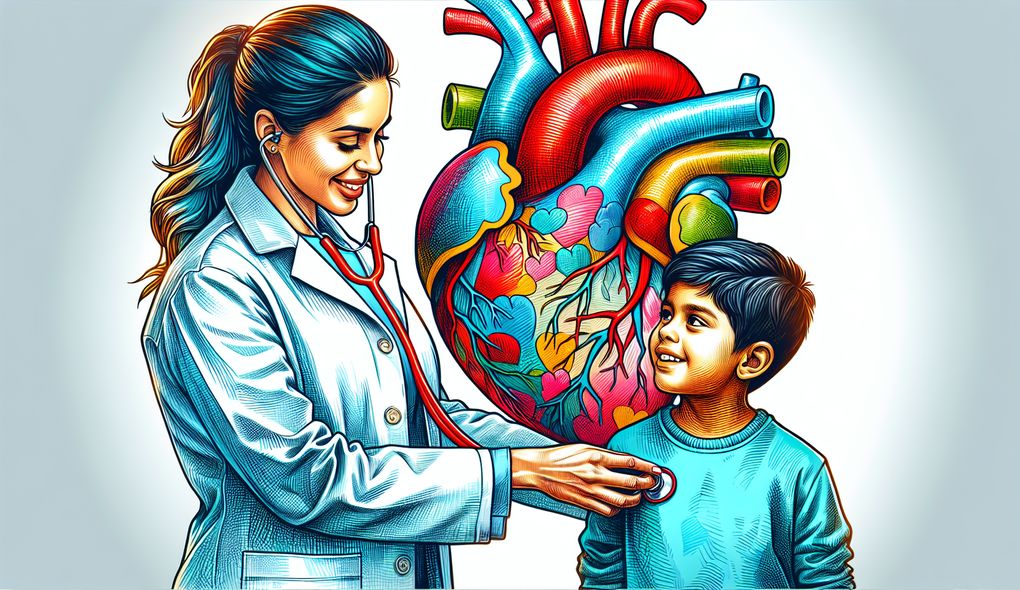Tell us about a time when you had to work under pressure to make quick decisions in a time-sensitive situation.
INTERMEDIATE LEVEL

Sample answer to the question:
One time, while working as a Pediatric Cardiologist, I was faced with a time-sensitive situation that required quick decision-making under pressure. A young patient was rushed to the emergency room with severe chest pain and difficulty breathing. After conducting a preliminary examination, I realized that the patient was experiencing a cardiac emergency. With the clock ticking, I immediately ordered an electrocardiogram (ECG) and echocardiogram to assess the severity of the condition. Based on the results, I made the critical decision to proceed with an emergency cardiac catheterization to relieve the blockage in the patient's coronary artery. The procedure went smoothly, thanks to my expertise in using cardiac diagnostic equipment and my ability to stay calm under pressure. Through effective communication with the surgical team, we were able to successfully stabilize the patient and ensure a full recovery. This experience taught me the importance of remaining composed in high-pressure situations and making swift decisions for the well-being of my patients.
Here is a more solid answer:
As a Pediatric Cardiologist, I have encountered numerous instances where I had to work under pressure and make quick decisions in time-sensitive situations. One particular situation that comes to mind is when I received an urgent call from a referring pediatrician regarding a 5-year-old patient who had collapsed during a sports event. I immediately assessed the severity of the situation and instructed the pediatrician to perform chest compressions while awaiting my arrival. On reaching the scene, I quickly determined that the child was experiencing a cardiac arrhythmia, requiring immediate intervention. With the limited resources available on-site, I had to think on my feet and make critical decisions. I instructed the team to establish intravenous access for medication administration and initiated advanced cardiac life support maneuvers to restore the child's heart rhythm. Throughout the process, I remained calm and focused, providing clear instructions to the team and coordinating the logistics for the patient's transfer to the nearest pediatric cardiac center. This experience highlighted my strong analytical and problem-solving abilities, as well as my ability to handle high-pressure environments with composure and professionalism.
Why is this a more solid answer?
The solid answer expands on the basic answer by providing specific details about the time-sensitive situation, the candidate's decision-making process, and their ability to handle the pressure. It also emphasizes their problem-solving abilities and their calm and professional demeanor in such situations. However, it can be further improved by including more information on the candidate's collaboration with the team and communication with the patient's family.
An example of a exceptional answer:
In my role as a Pediatric Cardiologist, I encounter high-pressure situations that demand quick decisions and a calm demeanor on a regular basis. One such instance occurred when I was called to the emergency room to evaluate a newborn with a complex congenital heart condition. The baby was experiencing severe respiratory distress and required immediate life-saving interventions. Understanding the criticality of the situation, I assembled a multidisciplinary team comprising neonatologists, cardiac surgeons, and anesthesiologists to develop a comprehensive treatment plan. Through effective communication and collaboration, we quickly decided to transport the baby to the cardiac operating room for emergent surgery. During the procedure, unforeseen complications arose, requiring me to make split-second decisions to address and mitigate the risks. With clear and concise directions, I led the surgical team, ensuring that every step was executed meticulously. Despite the immense pressure, I maintained a composed and confident demeanor, offering reassurance to the family and maintaining open lines of communication throughout the process. The surgery was successful, and the baby recovered well, underscoring the importance of teamwork, quick thinking, and a cool-headed approach in time-sensitive situations.
Why is this an exceptional answer?
The exceptional answer expands on the solid answer by describing a more complex and challenging situation faced by the candidate as a Pediatric Cardiologist. It emphasizes their ability to lead and collaborate with a multidisciplinary team, make split-second decisions, and communicate effectively with the patient's family. The answer showcases the candidate's advanced problem-solving abilities and their unwavering composure under immense pressure.
How to prepare for this question:
- 1. Familiarize yourself with past experiences where you had to make quick decisions under pressure in a time-sensitive situation. Highlight situations that demonstrate your problem-solving abilities and ability to remain calm and professional.
- 2. Review the latest advancements in pediatric cardiology treatments and procedures. Stay up to date with the best practices to showcase your knowledge and expertise during the interview.
- 3. Practice articulating your decision-making process and how you prioritize tasks in high-pressure environments. Emphasize your ability to think on your feet and adapt to rapidly changing situations.
- 4. Reflect on your communication and interpersonal skills. Consider situations where you effectively communicated with team members, patients, and their families during stressful circumstances.
- 5. During the interview, focus on specific details to provide a comprehensive and engaging response. Mention any relevant certifications, training, or experiences that highlight your ability to handle high-pressure situations.
What are interviewers evaluating with this question?
- Strong analytical and problem-solving abilities
- Ability to handle stressful situations and high-pressure environments with calmness and professionalism

